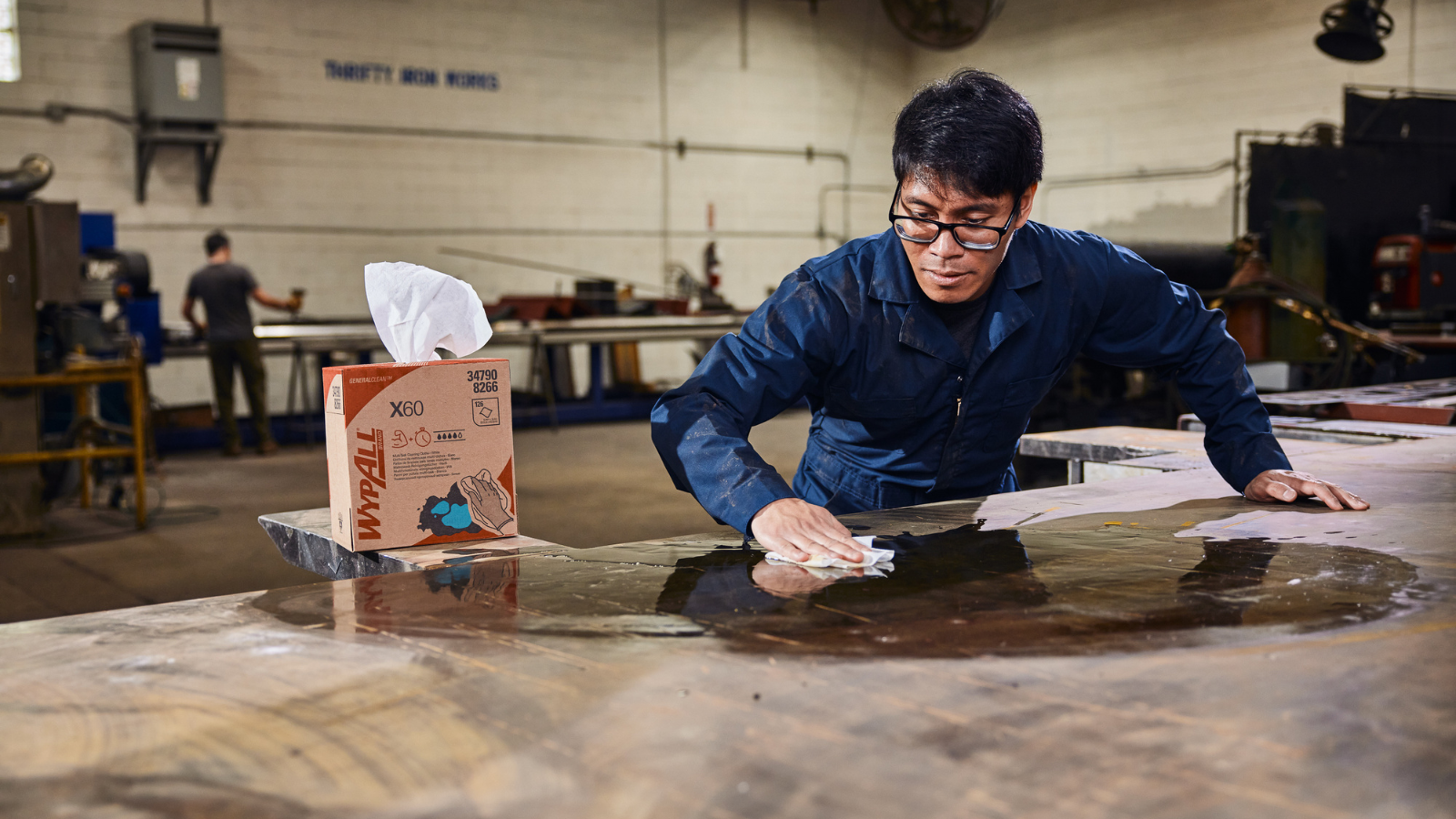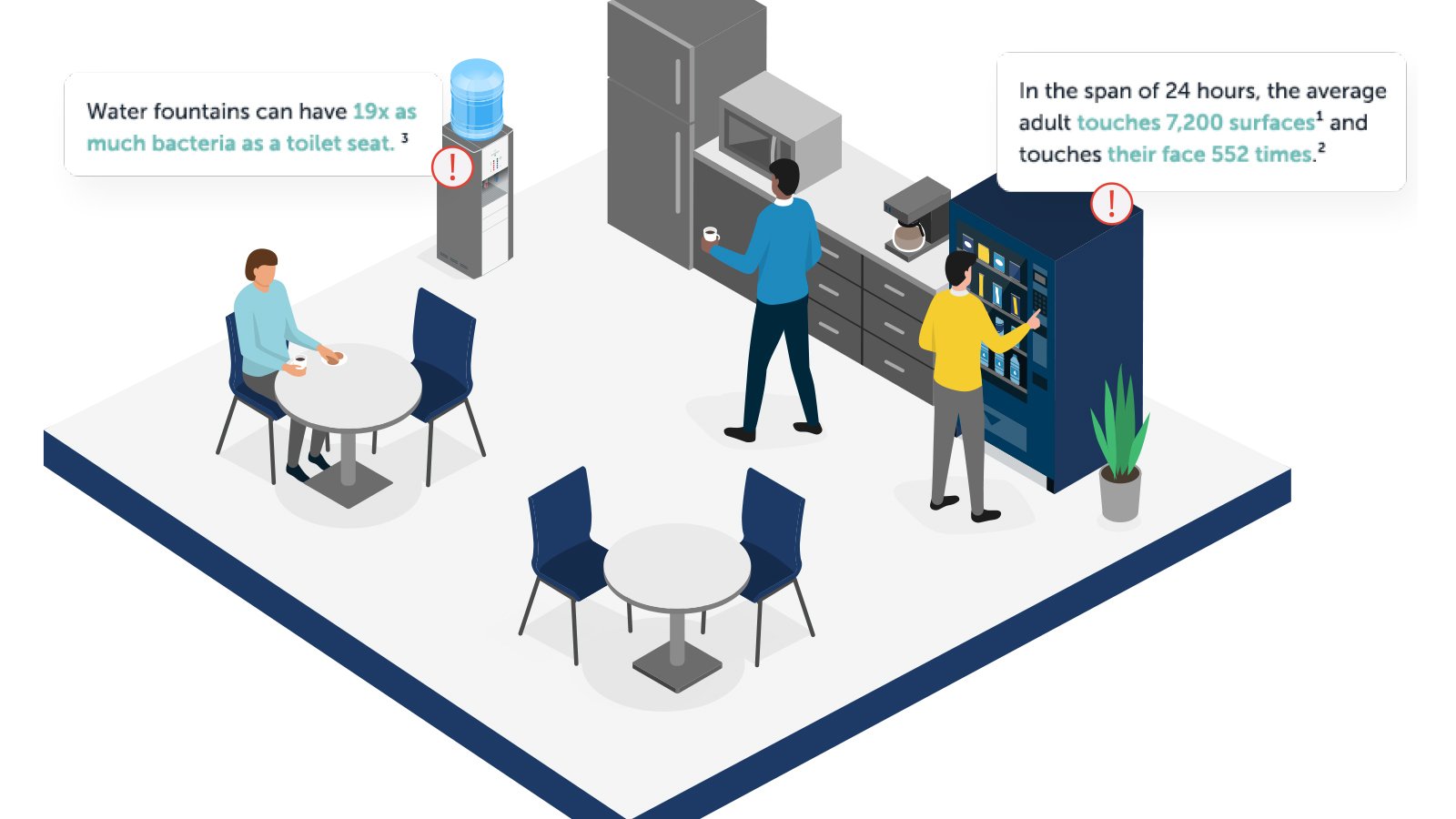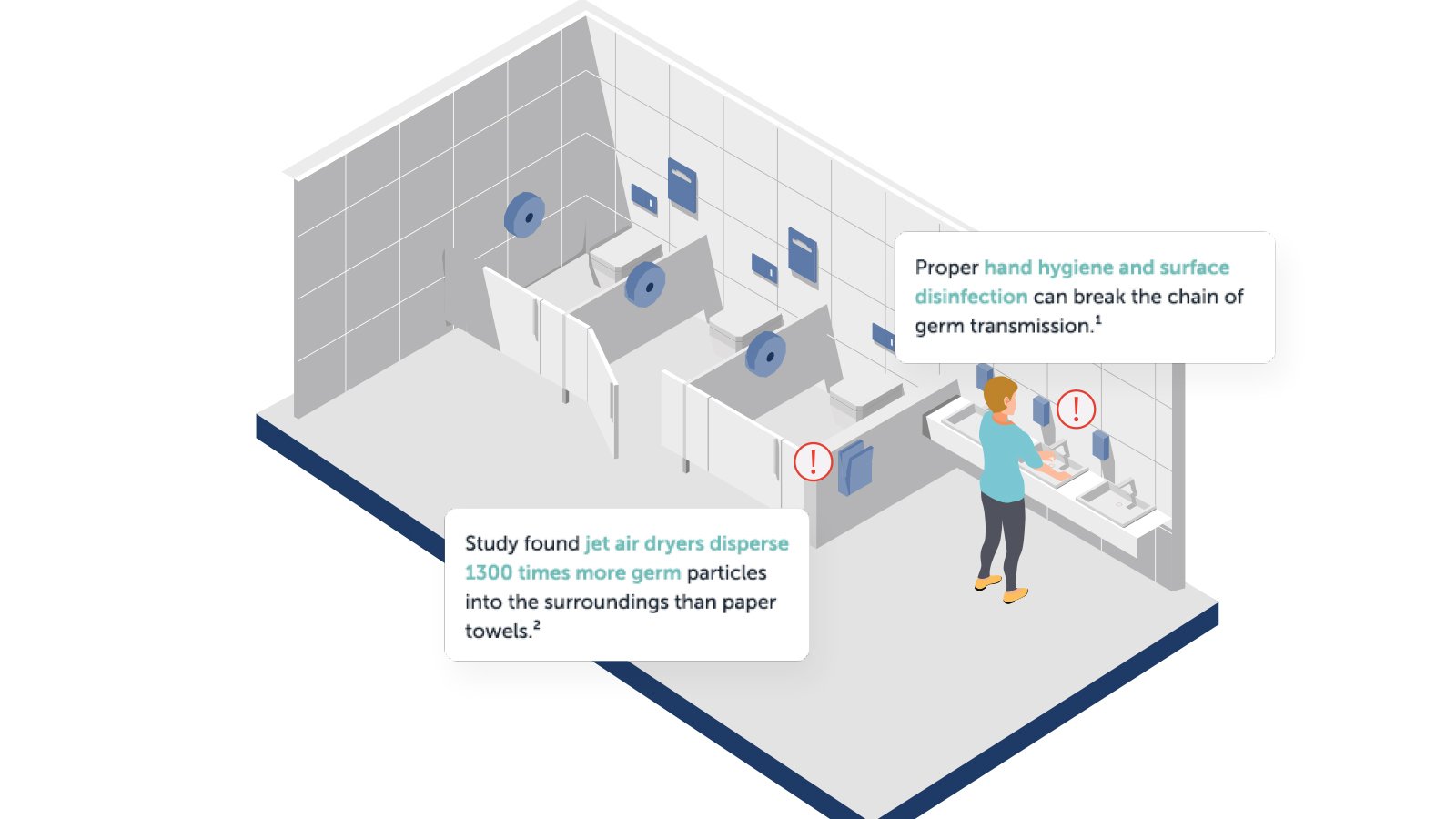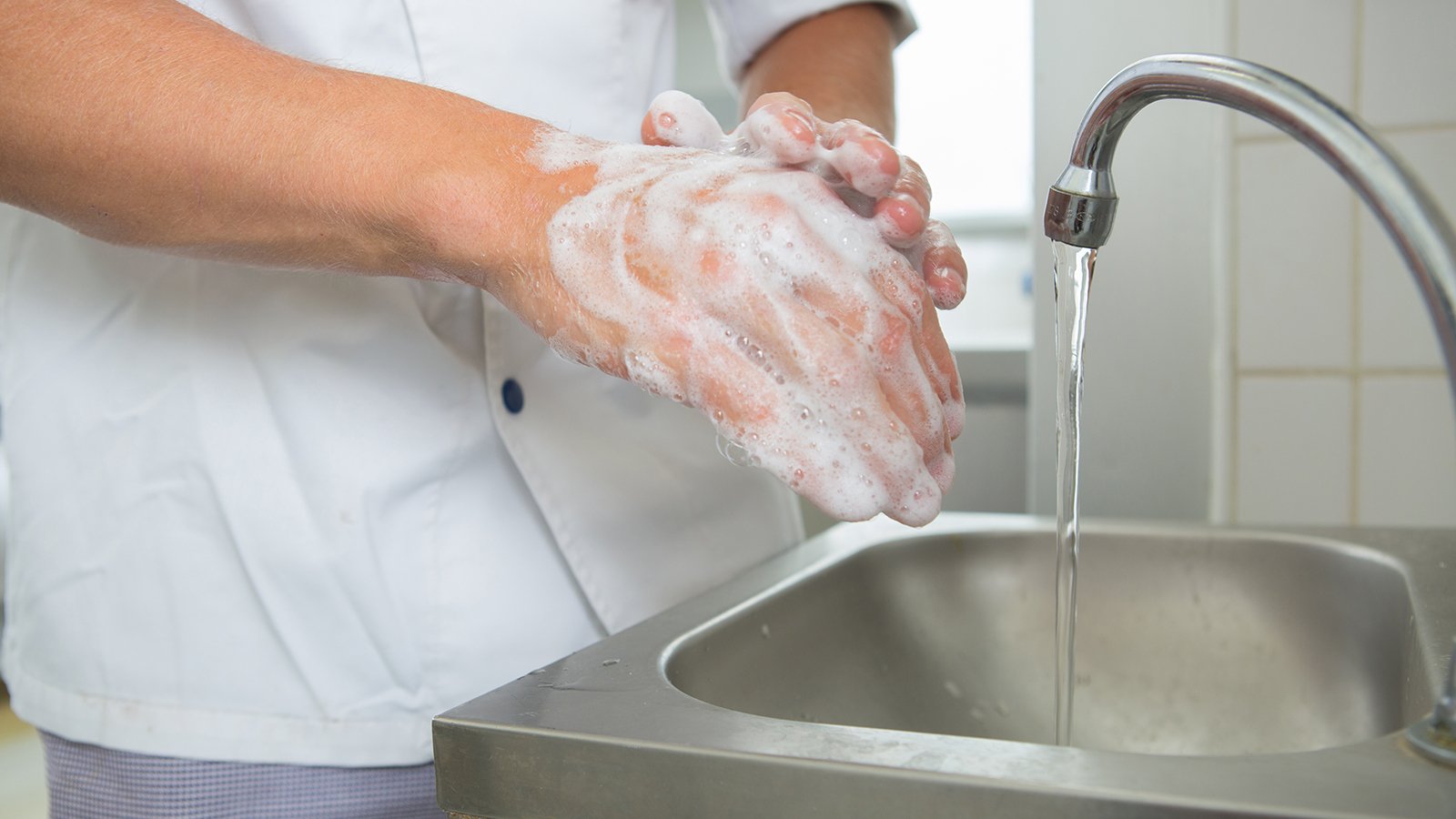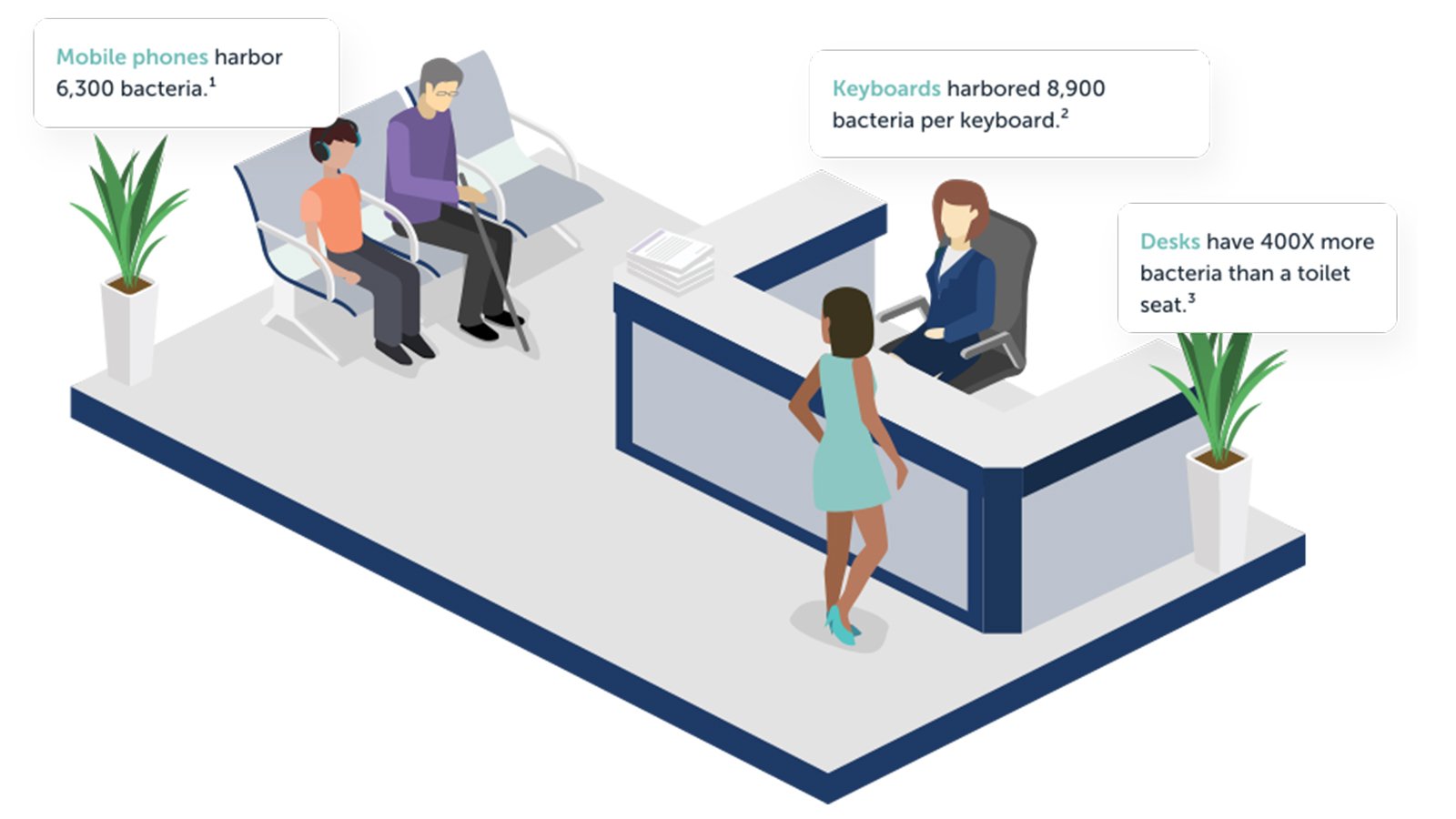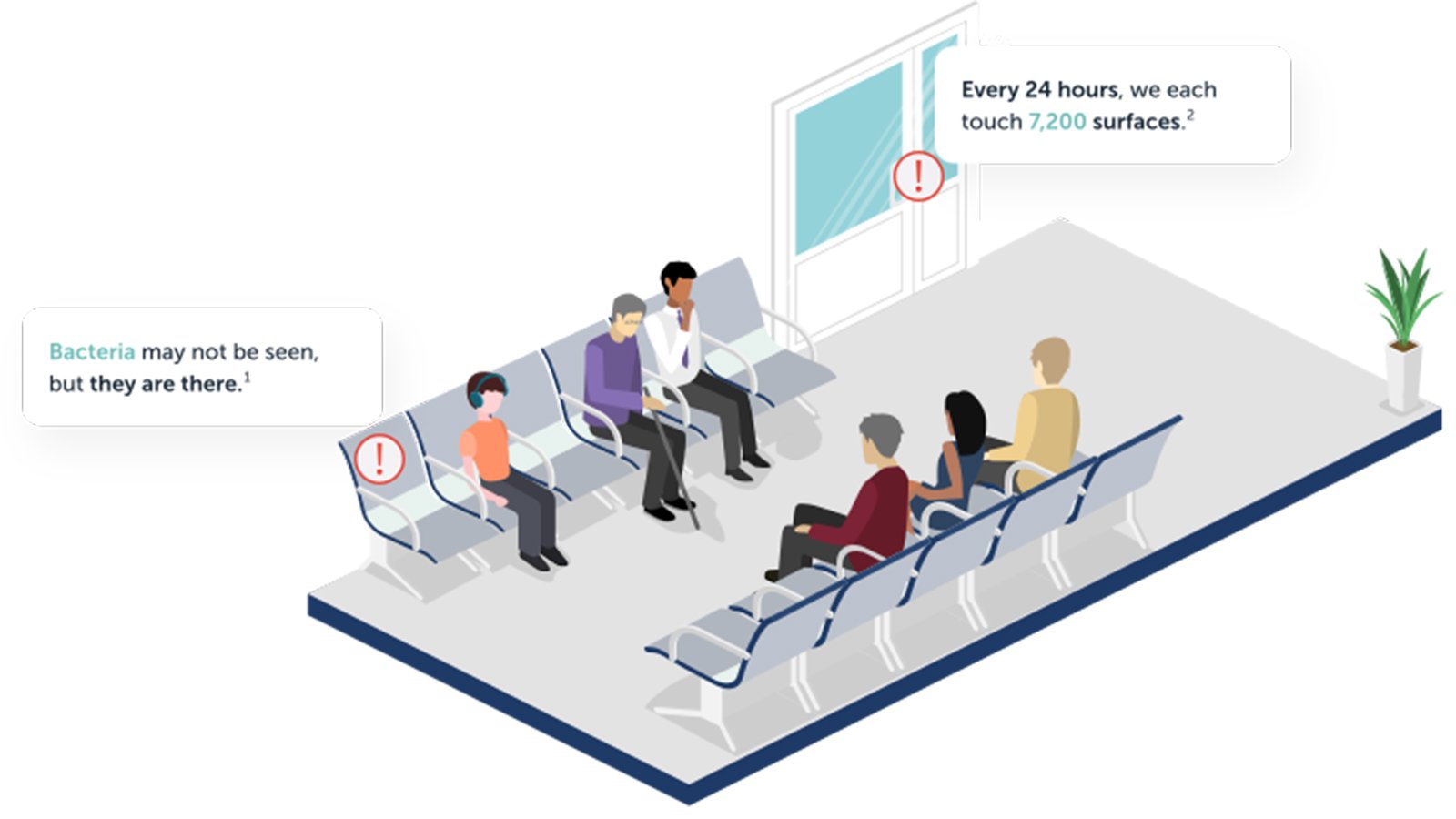Last Updated JANUARY 2024
Hello, hygiene.
How good environmental hygiene can help improve occupational wellness
The health benefits and emotional impact of environmental hygiene can affect everyone within a facility. However, the teams charged with implementing and activating environmental hygiene programs, in particular the cleaning staff, have a rather unique relationship with these programs.

Being responsible for cleanliness and hygiene puts them in a position where their efforts within the facility dually serve as a motivational incentive and rewarding benefit for doing their jobs well.
Environmental wellness involves being able to be and feel physically safe in safe and clean surroundings and to be able to access clean air, food, and water. This includes both our micro-environment (the places where we live, learn, work, etc.) and our macro-environment (our communities, our country, and the planet).1
On average, we touch 7,200 surfaces every 24 hours.2 With this level of cross contamination, your teams charged with implementing and activating environmental hygiene programs, including environmental services (EVS) and purchasing, have the difficult task of ensuring that individuals follow hygiene protocols and surfaces are properly treated as proper hand hygiene and surface disinfection can break the chain of germ transmission.3
While challenging, creating a hygienic environment not only supports the wellness of visitors, it provides cleaning teams with a clean and welcoming place to work, which can help fuel workplace morale and professional pride.
Taking a broader view, the level of hygiene and cleanliness within your facility can also correlate with the quality of environmental wellness experienced by visitors and staff. For example, a clean and hygienic facility provides building occupants with a higher comfort level and reduces potential risks that may be associated with buildings that are not as clean, improving productivity deficits due to absenteeism and presenteeism.4
Cleanliness and hygiene are important factors for employees and employers in any industry. This is because not only do these factors allow for employees to feel good in their workplace and improve wellbeing, but they also proactively prevent sickness that would otherwise lead to absenteeism and presenteeism.
Absenteeism can be defined as an individual's absence from work. One of the most common factors is absenteeism due to personal illness. Presenteeism is when an employee comes to work while being ill.5
In addition to the strain on employee productivity caused by absenteeism and presenteeism, not placing enough emphasis on environmental wellness within your facility can come with a monetary cost. For example, a large survey published by the Australian Industry Group (AIG) in 2015 estimated that absenteeism directly costs organizations AUD $578 per employee per day of absence.6
The impact of your healthcare facility's environmental hygiene program is tracked in various ways, but observing the health and wellness of the cleaning staff can provide valuable anecdotal and measurable insights.
Tasked with replenishing products needed to promote hand hygiene and execute surface cleaning, sanitizing and disinfecting, understanding their relationship with your facility’s environmental hygiene program can help you judge the level the hygiene and cleanliness being achieved across your facility.
Written by Healthcare Insights Team, Kimberly-Clark Professional, Australia
Like what you're reading?
Subscribe to receive more valuable content.
References
1 Swarbrick, M. (2012). A wellness approach to mental health recovery. In A. Rudnick (Ed.), Recovery of people with mental illness: Philosophical and related perspectives, 30-38. Oxford, UK: Oxford University Press.
2 Kwok, Y.L.A., McLaws, M. (2015) Face touching: A frequent habit that has implications for hand hygiene. American Journal of Infection Control, 43, 112-4.
3 Association for Professionals in Infection Control and Epidemiology. (2018). Break the Chain of Infection.
4 International Sanitary Supply Association. (2021) The value of clean: How cleaning improves your bottom line, 11
5 International Sanitary Supply Association. (2021) The value of clean: How cleaning improves your bottom line, 8,9,11
6 International Sanitary Supply Association. (2021) The value of clean: How cleaning improves your bottom line, 9





